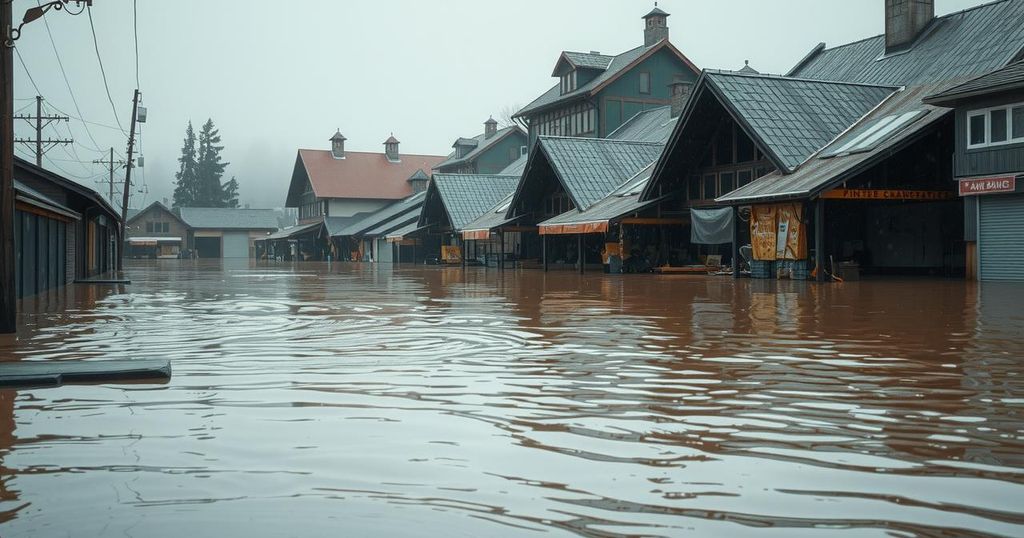Floods Claim Over 100 Lives in Northern Nigeria Amid Climate Challenges

At least 111 people have died in northern Nigeria due to severe flooding caused by heavy rainfall in Mokwa, Niger state. Officials expect the death toll may rise. The area has faced prolonged dry spells and climate change issues, compounding the impact during the short wet season.
At least 111 people have lost their lives in northern Nigeria following catastrophic flooding triggered by heavy rains in the early hours of the morning. This tragedy struck Mokwa, a market town in Niger state, where local farmers usually engage in trade with southern merchants. Officials have warned that the number of fatalities is likely to increase as recovery efforts continue.
The Nigerian Hydrological Services Agency has not provided immediate figures regarding the rainfall amounts recorded after midnight on Thursday in Mokwa, which is located about 180 miles from Abuja, the capital of Nigeria. The intensity of the flooding reflects ongoing challenges in the region caused by climate change, as communities have been grappling with extreme dry spells and subsequent deluges during the short rainy season.
Social media has been flooded with harrowing images and videos showing the extent of the devastation. Entire neighborhoods have been submerged, with homes almost completely under water, leaving only roofs peeking above the rising streams. Residents, struggling against the waist-deep water, have attempted to salvage their belongings while also assisting neighbors in distress.
In summary, the recent floods in northern Nigeria have resulted in tragic loss, with official reports indicating at least 111 fatalities. The dual challenges of climate change and erratic weather patterns have contributed significantly to these incidents, raising concerns for communities in the region. As rescue efforts continue, the devastation showcases the critical need for improved disaster preparedness and climate resilience.
Original Source: nanaimonewsnow.com






